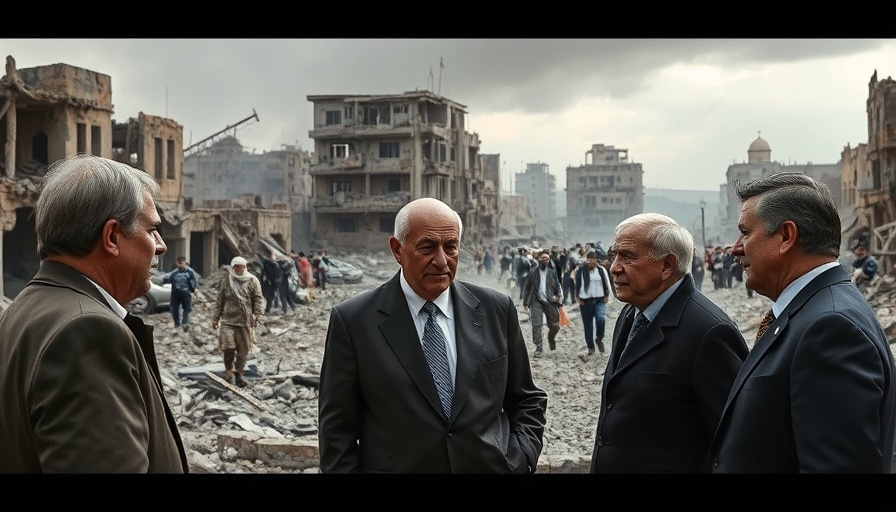
Negotiations at the Heart of the Middle East
The ongoing conflict in the Middle East has prompted high-stakes negotiations that are taking place away from the public eye. Interestingly, these discussions have been taking place not just in traditional diplomatic arenas but also through secret channels, raising questions about their impact and effectiveness. As tensions escalate, the possibility of a ceasefire is being actively discussed, with Israel reportedly insisting on a "seriousness down-payment" from Hamas before any relinquishing of control or disarming can occur.
Understanding the Role of the Palestinian Authority
A pivotal part of these negotiations involves the Palestinian Authority (PA), which is set to play a crucial role following reforms to its governance structure. The PA's endorsement seems essential for any successful transition towards peace. Their involvement is expected to last around a decade, during which substantial reforms will be implemented to facilitate the reconstruction of the affected areas. This cooperation is vital as it could lead to a more stable governance framework that not only engages in the immediate aftermath but also lays the groundwork for sustainable peace.
The Broader Context of the Current Conflict
The current conflict has roots in a complex historical backdrop marked by decades of tension and failed negotiations. Understanding this history is critical, as it informs the motivations behind each party’s actions today. Many observers note that successful peace in the Middle East requires not just political agreements but also cultural and religious understanding. Culturally engaged Christians and humanitarian advocates have a unique role here, as they can promote the importance of advocating for peace that acknowledges the dignity and humanity of all parties involved.
The Significance of Interfaith Dialogue
In the quest for peace, interfaith dialogue has been increasingly recognized as an essential component. Engaging in conversations that bridge cultural and religious divides can foster understanding and compassion among different faith groups. This dialogue is not only crucial for the immediate parties but also for global communities. As Christians, advocating for peace should involve promoting comprehensive understanding rather than merely seeking solutions through political means. Many believers might resonate with the notion that true peace calls for reconciliation at a deeply personal level.
Potential Outcomes and Future Predictions
The negotiations are at a critical juncture, with varying predictions about the possible outcomes. While there is cautious optimism regarding the involvement of the Palestinian Authority, some analysts express concern over Hamas's willingness to comply with the stringent conditions being set forth. A successful resolution would require not just political will but also the active involvement of various stakeholders, including religious leaders and community representatives.
Reflecting on Our Responsibilities
As members of a globally aware Christian community, this unfolding situation calls for a reflective approach. It invites believers to engage with the story beyond the headlines—recognizing our potential to influence positive change and support initiatives that promote justice and peace. Advocates for social justice and human rights have an opportunity to shape a narrative that highlights the importance of compassion in global negotiating processes.
In conclusion, the ongoing secret negotiations highlight the complexities of achieving lasting peace in the Middle East. As discussions evolve, it is vital for interested parties to remain informed and engaged, recognizing the importance of advocacy and dialogue in fostering understanding between different cultures and faiths. As compassionate witnesses to the challenges faced by communities in conflict, we are called to stand in solidarity with those seeking peace and reconciliation.
 Add Row
Add Row  Add
Add 








 Add Row
Add Row  Add
Add 

Write A Comment